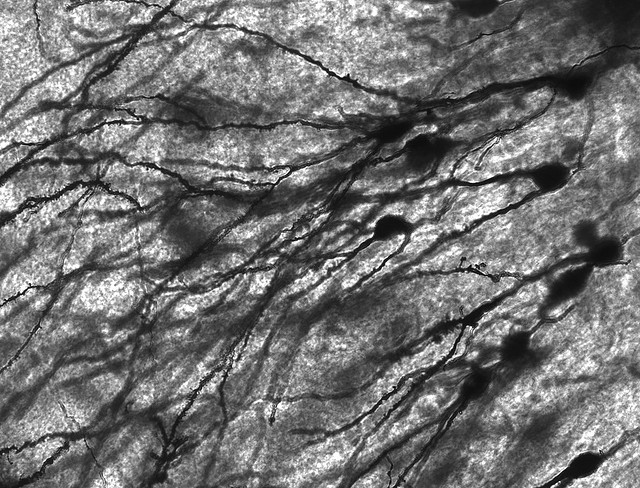
A team of researchers has demonstrated that it is possible to repair damage between nerve cells, improving failing memory. These findings could lead to new gene therapy treatments for Alzheimer's.
In laboratory experiments on the basic mechanisms that cause Alzheimer’s dementia, an international research team led by Heidelberg neurobiologist Prof. Dr. Ulrike Müller and a team of French scientists have succeeded in largely “repairing” the nerve cell damage typical in this disease.
The researchers took a closer look at a key protein in Alzheimer’s pathogenisis, APP, and one of its cleavage products APPsα. Prof. Müller of Heidelberg University’s Institute of Pharmacy and Molecular Biotechnology explains that viral gene shuttles were used to drive the delivery of APPsα into the brains of Alzheimer´s mouse models. The protein APPsα in turn elicited repair effects and clearly improved memory. The researchers hope to use these findings to explore new approaches in the development of gene therapy for Alzheimer’s. Their results were published in the journal “Acta Neuropathologica”.
Alzheimer’s is the most frequent cause of dementia in the elderly. It particularly affects regions of the brain that are fundamental for memory and learning. The junctions through which the nerve cells communicate, the synapses, disappear long before the nerve cells die, damage that impairs both learning and memory. “While dead nerve cells are irretrievably lost, damaged synapses can be regenerated in the elderly,” Prof. Müller emphasises.
The brains of Alzheimer’s patients show plaque deposits, she explains. The deposits thwart the communication between the nerve cells and cause them to eventually die. The main component of the plaque is a short protein fragment known as the beta amyloid peptide. It is generated when the considerably larger amyloid precursor protein, or APP, is cleaved. “Until now, scientists believed that the overproduction of beta amyloid peptides was the main cause of Alzheimer’s. More recent investigations, however, have demonstrated that another APP cleavage product, the APPsα protein, also diminishes over the course of the disease,” Ulrike Müller continues.
The protein cleaving enzymes, called secretases, play a key role in this process. The scissor-like secretases cut the APP cell surface protein at various positions. “These cleaving processes produce beta amyloid peptides that are toxic to the nerve cells, but also produce the protective APPsα cleavage product, which counteracts the toxic peptide,” says Prof. Müller. “Research over the last few years indicates that a misregulation of the secretase cleavage in Alzheimer’s results in inadequate production of protective APPsα.” Earlier studies by Müller’s research group had already shown that APPsα has an essential function in the nervous system, particularly because it regulates the formation and function of synaptic junctions and spatial memory. These findings were used to investigate a new approach for a possible gene therapy for Alzheimer’s.
The international research team used viral gene shuttles to introduce APPsα into the brains of mouse models with plaque deposits like those in Alzheimer’s. “After introducing the APPsα, we saw that the nerve cell damage could be repaired. The number of synaptic junctions increased, and spatial memory began to function again,” reports Ulrike Müller. “Our research results show the therapeutic effectiveness of APPsα in the animal model and open up new perspectives for the treatment of Alzheimer’s.”
Cover image: Gyrus Dentatus 40x (Roxana, Flickr).
References
DOI: 10.1007/s00401-015-1498-9
Stats
- Recommendations n/a n/a positive of 0 vote(s)
- Views 3024
- Comments 0